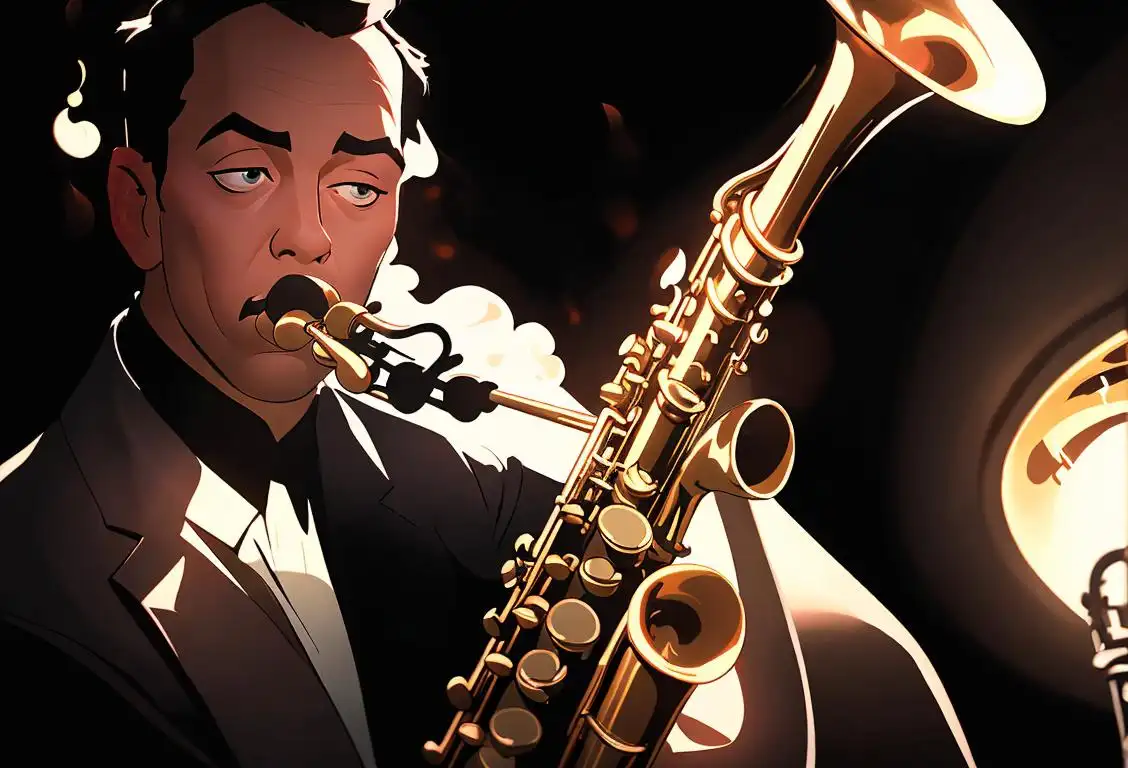National Bagpipe Day

Happy National Bagpipe Day! Time to grab your kilt and dance a jig because today is all about celebrating those melodic, yet slightly haunting, tunes that the bagpipe brings to our ears. Whether you're Scottish, a fan of Scottish culture, or just enjoy the sound of bagpipes, this is the day for you!
When is Bagpipe Day?
It's national bagpipe day on the 10th March.
The Origin of National Bagpipe Day
Let's dive into the internet history of National Bagpipe Day and uncover its origins. While bagpipes have a long and storied history, the designation of a specific day to celebrate them on a national level is relatively new. National Bagpipe Day was established to honor the iconic instrument and the talented musicians who play them.
With their distinctive sounds and unique melodies, bagpipes have become synonymous with Scottish culture. However, they have also made their way into other traditions and music genres worldwide.
On March 10, 2015, National Bagpipe Day received the most mentions online, indicating a surge in popularity and interest in the historical instrument.
How to Celebrate National Bagpipe Day
If you want to join in the celebration of National Bagpipe Day, here are a few ideas to get you started:
- Listen to bagpipe music: Tune in to your favorite bagpipe tunes or discover new ones. Let the melodic sounds whisk you away to the Scottish Highlands or transport you to a medieval castle.
- Learn about bagpipe history: Take some time to research the rich history and cultural significance of bagpipes. It's fascinating to learn how this musical instrument has evolved over centuries.
- Attend a bagpipe performance: Check if there are any local bagpipe performances or concerts happening near you. Experience the power and magic of a live bagpipe performance firsthand.
- Try playing the bagpipes: If you're feeling ambitious, why not give playing the bagpipes a try? There are resources available online to help beginners get started, but fair warning, it's not the easiest instrument to master.
- Share the love: Spread the joy of National Bagpipe Day by sharing bagpipe music on social media or hosting a small gathering with friends and family. The more people who appreciate the bagpipes, the merrier!
Did You Know?
Did you know that bagpipes are not just for traditional music? They have also been incorporated into modern music genres such as rock, folk, and even electronic dance music (EDM)! Imagine dancing the night away to bagpipes mixed with thumping bass beats. It's a bagpipe party you won't want to miss!
History behind the term 'Bagpipe'
c. 1000 AD
The Early Origins
The bagpipe's history can be traced back to around 1000 AD in various parts of the world. It is believed to have originated independently in different cultures, including ancient Rome, ancient Greece, and ancient Egypt. The bagpipe, as we know it today, is thought to have evolved from ancient instruments like the Greek aulos and the Egyptian hemes. These early bagpipes used a simple reed and bladder system to produce sound.
15th Century
Rise in Popularity in Europe
During the 15th century, the bagpipe gained significant popularity in Europe, particularly in Scotland, Ireland, and England. They became an integral part of the folk music traditions in these countries. Bagpipe music became synonymous with military marches and was often played in battlefields to boost the morale of soldiers. The instrument's distinct sound and versatility made it a favorite among musicians and common folk alike.
18th Century
The Great Highland Bagpipe
In the late 18th century, the Great Highland Bagpipe emerged as the most widely recognized form of bagpipe. It became an iconic symbol of Scottish culture and heritage. The Great Highland Bagpipe is known for its powerful sound, consisting of drones and a chanter, which can produce a wide range of melodies. Highland bagpipe music became an integral part of Scottish celebrations and events, including weddings, funerals, and Highland games.
19th Century
Bagpipe's Global Influence
In the 19th century, Scottish immigrants took the bagpipe with them as they traveled to different parts of the world, including North America, Australia, and New Zealand. The bagpipe's influence spread to these regions, where it became an integral part of the cultural fabric. Scottish bagpipe bands were established, and their performances were highly regarded. The bagpipe's popularity continued to grow, showcasing its remarkable ability to transcend borders and immerse various cultures in its unique sound.
Present Day
Continued Appreciation and Evolution
Today, the bagpipe remains an enduring symbol of cultural identity and heritage for many nations. It is played in diverse musical genres, ranging from traditional folk music to modern rock and even classical compositions. Bagpipe festivals and competitions take place worldwide, attracting enthusiasts and performers from different countries. Despite its ancient origins, the bagpipe continues to evolve, with modern innovations enhancing its sound and playability while preserving its rich historical significance.
Did you know?
Did you know that bagpipes are not just for traditional music? They have also been incorporated into modern music genres such as rock, folk, and even electronic dance music (EDM)!Tagged
celebration culture musicFirst identified
10th March 2015Most mentioned on
10th March 2015Total mentions
25Other days
Jay Z Day
Band Day
Louisiana Day
Xhosa Day
Reggae Day
Bagpipe Day
Barbershop Quartet Day
Dubstep Day
Jazz Day
Dub Day








